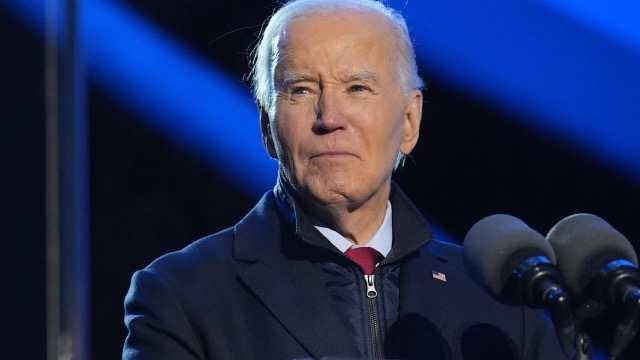President Biden on Monday vetoed a bipartisan bill proposing the addition of 66 federal judgeships to address concerns about understaffed courts. He argued the measure was “too hurried” in its passage through Congress. However, critics speculated the veto was motivated by concerns over President-elect Donald Trump’s potential to appoint judges once he takes office in January.
The legislation, known as the Judicial Updates and District Growth for Equity and Stability (JUDGES) Act, would have expanded the federal judiciary for the first time since 1990, adding judges in 13 states over a period extending to 2035.
“The House of Representatives’ hurried action fails to resolve key questions in the legislation, especially regarding how the new judgeships are allocated,” Biden, 82, said in a statement explaining his decision. “Neither the House nor the Senate explored fully how the work of senior status judges and magistrate judges affects the need for new judgeships.”
Bipartisan Support and Rising Caseloads
The bill garnered significant bipartisan support in both chambers of Congress, with many judges across the political spectrum urging its passage. Federal judges have pointed out that caseloads have increased by more than 30% in the past three decades, causing significant delays in justice.
Under the JUDGES Act, the new judgeships would have been introduced in six staggered waves over 11 years, beginning in 2025. This gradual approach was intended to prevent any single president or party from disproportionately benefiting from the judicial expansion—a sticking point in previous efforts to increase the number of judges.
Still, the timing of the bill’s passage raised concerns among some Democrats, especially following Trump’s victory on November 5. Although the Democratic-led Senate approved the measure in August, the House waited until after the election to pass it on December 12, with some Democrats growing wary of its potential implications under a Trump administration.
The final House vote was 236 to 173, with 171 Democrats and two Republicans opposing the bill. Overriding Biden’s veto would require a two-thirds majority in both chambers, a threshold the House vote clearly fell short of reaching.
Speculation Over Trump’s Influence
While Biden’s veto statement made no mention of Trump, many observers interpreted the move as a direct response to the president-elect’s impending return to the White House. Trump, during his first term, appointed a record number of federal judges, significantly shaping the judiciary. The possibility of Trump making additional appointments through the JUDGES Act likely weighed heavily on Democrats’ minds.
“There were real concerns that Trump would have the opportunity to stack the courts further,” one congressional aide said privately.
A Legacy of Vetoes
The veto marks Biden’s 14th since taking office, making him the president with the highest number of vetoes since Bill Clinton. In contrast to the judiciary-focused JUDGES Act, Biden simultaneously signed the $895 billion National Defense Authorization Act (NDAA) on Monday.
Controversy Over the NDAA
While Biden praised provisions of the NDAA, including increased benefits and a 4.5% pay raise for service members, he voiced strong opposition to its controversial measure prohibiting funds from being used for transgender surgeries on minors.
“The provision targets a group based on that group’s gender identity and interferes with parents’ roles to determine the best care for their children,” Biden said in a statement. “No service member should have to decide between their family’s health care access and their call to serve our nation.”
The veto of the JUDGES Act underscores Biden’s concern about preserving balance within the federal judiciary while navigating the last days of his presidency amid heightened political tensions.
 Telegram is where we really talk. Don't miss out!
Telegram is where we really talk. Don't miss out!






